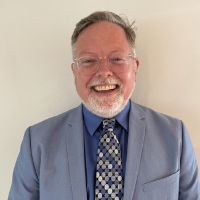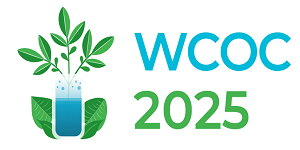WCOC 2025

Hebei University of Technology, USA
Abstract:
Nanomedicine is the use of nanomaterials to improve disease prevention, detection, and treatment which has resulted in hundreds of FDA approved medical products. While nanomedicine has been around for several decades, new technological advances are pushing its boundaries. For example, Artificial Intelligence (AI) has revolutionized numerous industries to date. However, its use in nanomedicine has remained few and far between. One area that AI has significantly improved nanomedicine is through implantable sensors. This invited talk will present research in which implantable sensors, using AI, can learn from patient’s response to implants and predict future outcomes. Such implantable sensors not only incorporate AI, but also communicate to a handheld device, and can reverse AI predicted adverse events. Examples will be given in which AI implantable sensors have been used in orthopedics to inhibit implant infection and promote prolonged bone growth. In vitro and in vivo experiments will be provided that demonstrate how AI can be used towards our advantage in nanomedicine, especially implantable sensors. Lastly, this talk will summarize recent advances in nanomedicine to both help human health and save the environment.
Biography:
Thomas J. Webster’s (H index: 120; Google Scholar) degrees are in chemical engineering from the University of Pittsburgh (B.S., 1995; USA) and in biomedical engineering from RPI (Ph.D., 2000; USA). He has served as a professor at Purdue (2000-2005), Brown (2005-2012), and Northeastern (2012-2021; serving as Chemical Engineering Department Chair from 2012 - 2019) Universities and has formed over a dozen companies who have numerous FDA approved medical products currently improving human health. He is currently helping those companies and serves as a professor at Hebei University of Technology, Saveetha University, Vellore Institute of Technology, UFPI, and others. Dr. Webster has numerous awards including: 2020, World Top 2% Scientist by Citations (PLOS); 2020, SCOPUS Highly Cited Research (Top 1% Materials Science and Mixed Fields); 2021, Clarivate Top 0.1% Most Influential Researchers (Pharmacology and Toxicology); 2022, Best Materials Science Scientist by Citations (Research.com); and is a fellow of over 8 societies. Prof. Webster is a former President of the U.S. Society For Biomaterials and has over 1,350 publications to his credit with over 53,000 citations. He was recently nominated for the Nobel Prize in Chemistry (2023).
